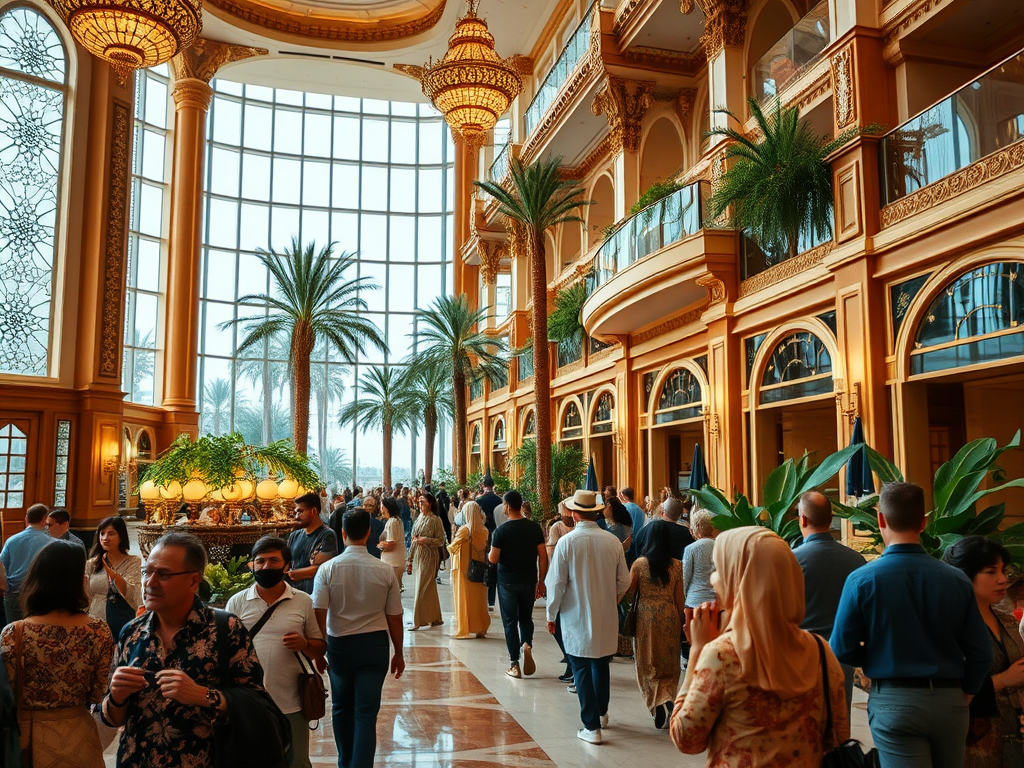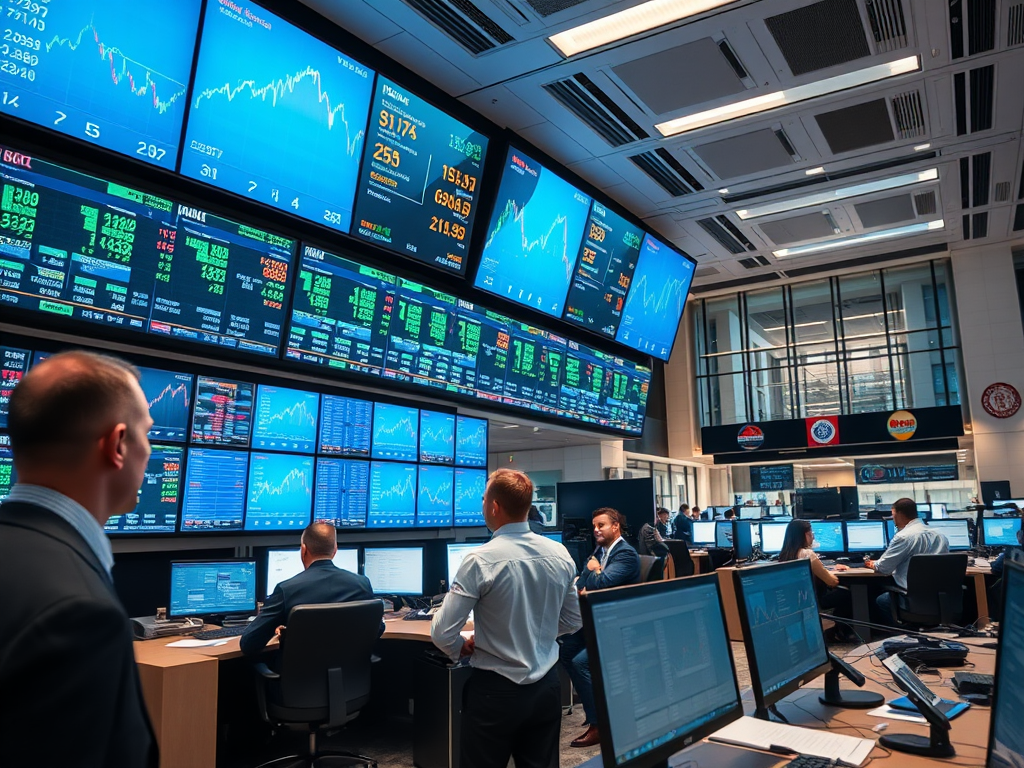Dubai’s evolution from a modest trading post to a global economic powerhouse is nothing short of remarkable. The city’s strategic location has positioned it as a gateway between the East and West, facilitating trade while attracting multinational corporations. With a booming tourism sector, robust real estate market, and dynamic financial services, Dubai presents a myriad of opportunities for savvy investors. As the emirate continues to diversify its economy, understanding its intricacies and potentials becomes vital. This article aims to provide investors with a comprehensive overview of the Dubai economy, shedding light on key sectors, government policies, and investment opportunities.
Furthermore, the UAE’s government has made substantial efforts to enhance the business climate. From establishing free zones to modernizing regulations, there are numerous incentives for investors to consider. Whether you’re contemplating a strategic investment in real estate, diving into the burgeoning tourism industry, or exploring financial services, the insights provided will help navigate Dubai’s vibrant economic landscape.
Key Economic Sectors

Dubai’s economy is a vibrant tapestry woven from multiple sectors, each contributing to its overall growth and development. Understanding these sectors is crucial when looking to invest. Below are the primary sectors that are driving economic momentum:
- Tourism and Hospitality
- Real Estate
- Trade and Logistics
- Financial Services
Tourism and Hospitality
Tourism stands as a cornerstone of Dubai’s economy. With attractions like the Burj Khalifa and luxurious resorts, the city draws millions of visitors annually. The hospitality sector has also seen substantial investments, ensuring that visitor experiences are world-class. Dubai’s strategic initiatives—such as hosting international events and festivals—have further cemented its reputation as a premier tourist destination. The growth in this sector continues to offer lucrative investment opportunities, especially in hospitality management and luxury service offerings.
Real Estate
The real estate market in Dubai is another vibrant sector. It boasts an array of investment opportunities, appealing not only to foreign investors but also to local entrepreneurs. Major developments, including mixed-use communities and high-end residential spaces, are continuously emerging. The regulatory environment has also evolved, encouraging investment through increased transparency and support. Here’s a closer look at some of the influential factors in Dubai’s real estate market:
| Factor | Description |
|---|---|
| Government Initiatives | Policies encouraging foreign ownership and investment. |
| Market Trends | Shifts towards sustainable and smart living solutions. |
| Pricing Trends | Stable prices with gradual appreciation expected. |
Trade and Logistics
Dubai serves as a key global trade hub due to its excellent connectivity and logistics infrastructures. The emirate has positioned itself strategically between major international markets, facilitating the easy flow of goods. Dubai’s ports and airports are among the most advanced in the world, ensuring swift transportation and logistics services. The established trade agreements further enhance the attractiveness of investing in logistics operations within this dynamic market. With a focus on e-commerce and digital trade, there are ample opportunities for investors to capitalize on this growth.
Financial Services
Financial services in Dubai are rapidly expanding, driven by the establishment of the Dubai International Financial Centre (DIFC). The center provides a business-friendly environment that attracts numerous international banks and financial institutions. Investors can find a range of services, from asset management to fintech innovations. Moreover, the government’s efforts in enhancing cybersecurity and promoting fintech are noteworthy. Investors are encouraged to explore the opportunities presented in the financial sector as it evolves to meet global demands.
Government Initiatives and Economic Policies

The government of Dubai has introduced various initiatives aimed at improving the overall business ecosystem. Policies encouraging transparency and investment protections foster a welcoming environment for international businesses. Key initiatives include:
- 100% foreign ownership in select sectors.
- Enhanced tax environment with minimal taxation on businesses.
- Streamlined processes for business licensing and registration.
Dubai’s numerous free zones offer unique advantages to investors. These zones allow full foreign ownership of businesses, providing a lucrative opportunity for both local and international players. Each free zone is tailored to specific industries, ensuring that businesses can operate with minimal interference and maximum efficiency. Here’s a list of several prominent free zones in Dubai:
- Jebel Ali Free Zone (JAFZA) – Focused on trade and logistics.
- Dubai Multi Commodities Centre (DMCC) – A hub for commodities trading.
- Dubai Internet City – Targeting tech and IT firms.
- Dubai Media City – Designed for media and advertising businesses.
Challenges and Risks for Investors
While the investment prospects in Dubai are vast, it’s crucial to consider the challenges that come with it. Factors such as political stability and economic fluctuations can influence investment outcomes. Regulatory complexities must also be navigated carefully, especially for foreign investors. Awareness of potential risks will equip investors with the insight needed to mitigate them effectively. Engaging with local experts and conducting thorough research are vital steps in making informed investment choices.
Conclusion
In conclusion, the Dubai economy presents a rich landscape for investors eager to tap into its diverse sectors and vibrant business environment. By understanding the key industries and the favorable policies in place, investors can make calculated decisions that align with market trends. Dubai continues to evolve, and by staying informed about changes in regulations and market dynamics, investors will be well-prepared for success. With its strategic location, robust infrastructure, and ongoing development projects, Dubai remains an enticing option for generating substantial returns on investments.
Frequently Asked Questions
- What are the main sectors driving Dubai’s economy? Dubai’s economy is primarily driven by tourism, real estate, trade and logistics, and financial services.
- What are the advantages of investing in Dubai’s free zones? Investors benefit from 100% foreign ownership, tax exemptions, and simplified administrative processes within free zones.
- Are there risks involved in investing in Dubai? Yes, potential risks include economic fluctuations, political instability, and regulatory changes that may affect business operations.
- How can foreign investors participate in Dubai’s economy? Foreign investors can take part through various channels, including real estate investments, setting up businesses in free zones, and joining local partnerships.
- What are some major upcoming projects in Dubai? Key upcoming projects may include expansion plans in tourism, infrastructure upgrades, and new developments in financial services.


